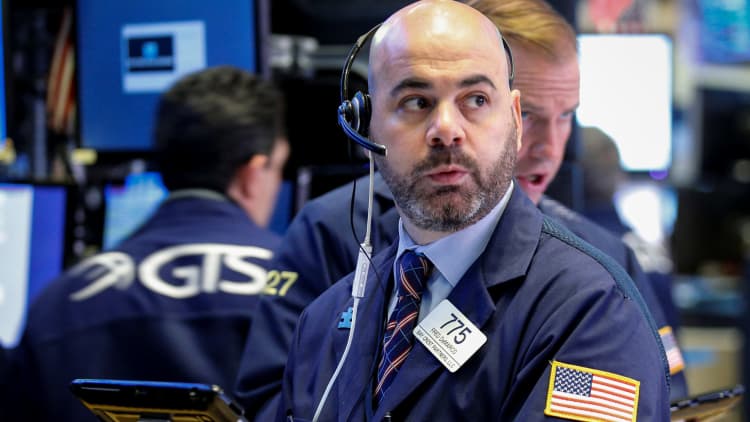
The stock market plunged after a better-than-expected jobs report sent interest rates higher.
The dropped 666 points on Friday.
Investors are concerned the Federal Reserve may reduce its monetary stimulus and increase interest rates more aggressively as the economy continues to strengthen.
Using Kensho, a hedge fund analytics tool, CNBC looked at what happens after the Dow drops 500 points or more in one day during the past 25 years.
The Dow has declined 500 points or more in one day 17 times since 1993. The findings show benchmark market indexes tend to rally the following trading session after such declines.
The Dow rose 1.5 percent on average the following day in the instances with a 65 percent chance of recovery.
CNBC also looked at the results one week after a big drop and the odds of a rebound increase.
On average, the Dow rallied 2.8 percent in the following week after the decline day, according to Kensho. It was positive more than 70 percent of the time.
CNBC also looked which stocks in the Dow outperformed in the week after the market decline day. Over the last 25 years, these were the names that investors tended to gravitate too.
The screen showed technology stocks did well. Apple and Cisco were the top performers during the following week with gains of more than 5 percent on average.
Please note past performance does not always equal future returns and if interest rates continue to shoot higher, this sell-off could buck historical trends and keep going.
Disclosure: NBCUniversal, parent of CNBC, is a minority investor in Kensho.



